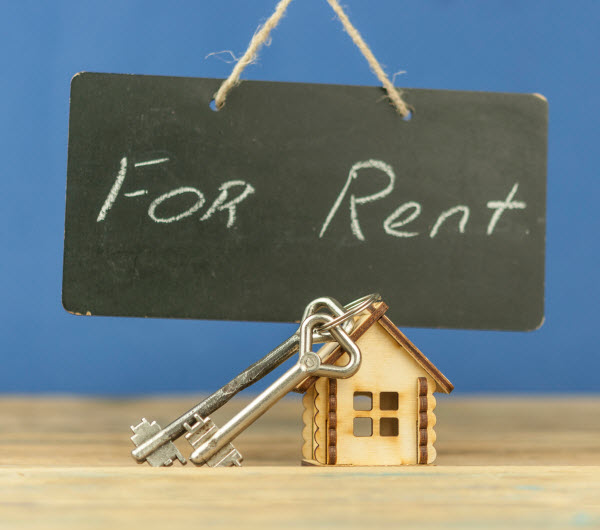
Direct property investment is an investment in real estate. This investment is either through transferring ownership directly into your name, the name of your business or a self-managed super fund, or by purchasing units in what’s known as a direct property fund.
Direct property includes commercial real estate (office, retail, bulky goods, large format retail, and industrial property investment) or residential real estate, including apartments, buildings, or a house on the street.
Property investment is a safe and stable long-term investment strategy that can offer a great retirement nest egg. You may have already started your climb on the property ladder or be saving to get started.
Wherever you are in your retirement planning journey, property investment is a well-lit pathway to retirement, but there are some factors you need to consider.

Property investment scenarios
Property investment can offer significant returns, especially when mortgage rates are low or the asset is unencumbered (debt free).
There are two property investment scenarios: living in the property as your main residence or home and owning additional property that forms part of your investment portfolio.
In today’s economic environment and current property market, either scenario is a great one, but at Step Up Financial we offer you some factors to consider.
Living in the property you own
If the property you live in is your family home and forms part of your retirement plan, here are a few questions to ask yourself when planning your retirement:

- Will I live in this home when I retire?
- Will I be able to afford the expenses of this home with my retirement income?
- Will I downsize my home and invest the difference in my retirement fund?
Downsizing or selling your large family home for a smaller retirement residence is a tax-effective strategy for increasing retirement funds as the “owner-occupied” home sale does not attract capital gains tax.
Owning an additional property as part of a retirement planning strategy
There are numerous positives and negatives to owning an investment property.

Positives:
Stability
Property is like food. Everyone needs food and a roof to live under so investing in residential property is generally a stable and secure investment option, with less volatility than shares when held for the longer term.
Commercial property investment is also a viable alternative.
Ensuring that specialist advice is obtained before investing in either the residential or the commercial space is essential.
Passive income
Like the stability of owning a property, earning income from that property is an attractive benefit. The market is buoyant with prospective tenants looking for a home, and rental income can be used to assist with mortgage and maintenance costs. Once any associated mortgage is cleared, rental income provides an additional income stream to assist with living expenses in retirement.

Tax benefits
Investment properties may offer great rewards at tax time. Tax deductions allow you to maximise your tax return by claiming expenses against the rental income. If rental income does not cover all costs associated with holding the property, the asset is considered “negatively geared”.
Eligible deductions include the interest component of the mortgage, council rates, agents fees, building insurance, body corporate costs and both internal and external depreciation, depending on the age of the property.
Long-term benefits
Historically, property values have generally increased over time, with rent increasing accordingly. While capital growth and rental increases are not guaranteed, over the long term, the Australian property market has witnessed this growth.
Selling an investment property before retirement and pocketing the “gain” can be a good strategy to increase retirement funding, although capital gains tax will apply to this sale, so investors need to be aware of any tax implications that will apply.

Negatives:
Liquidity Risk
Investing in direct property can expose the investor to liquidity risk, which occurs when property owners cannot afford to make mortgage payments – through loss of employment, extended periods without a tenant, or unexpected interest rate rises, for example.
As the property can take up to six months to sell in a “normal” selling period, investors may be forced to “fire sell” the asset and can end up achieving a price less than what they have paid for the property.
Capital Outlay
Buying a first home may require a significant capital outlay initially, which may present a challenge for young people having to save for the required deposit and costs. However, equity in that home can then be used to purchase further investment properties, where no capital outlay is required.
Credit providers can use a “cross securitisation” structure, where the deposit and costs, including stamp duty, can be paid from the equity held in the first home. An investment property portfolio can be built this way over time.

Tenants
You will be entrusting your investment property to tenants who may not care for the property in the same way that you would. This risk can be managed with a Landlords Protection insurance policy which provides cover in the event of malicious damage by tenants or loss of rent if the tenant defaults on their payments and abandons the property with rent owing.
It is also very important to ensure that your real estate property manager is proactive in properly vetting potential tenants and conducting regular inspections of your property.
Ongoing Costs
Ongoing maintenance costs, building and contents insurance, landlord’s insurance, council rates, body corporate fees, letting agent’s fees, and interest rates – all ongoing costs must be factored in when considering property investment.

Which retirement property investment pathway is right for you?
Deciding which retirement property pathway is best for you will depend on many factors and considerations like borrowing money, financial structures, tax implications, rental returns and capital gain. The applicable land and property taxes must also be taken into consideration to make sure you don’t lose on the swing what you may be gaining on the roundabout.
The best advice we can offer is to contact us to discuss your retirement strategy as property investment planning has no one-size-fits-all approach and requires expert advice from financial planners, so contact us to make an appointment.
Read more financial advice blogs.
